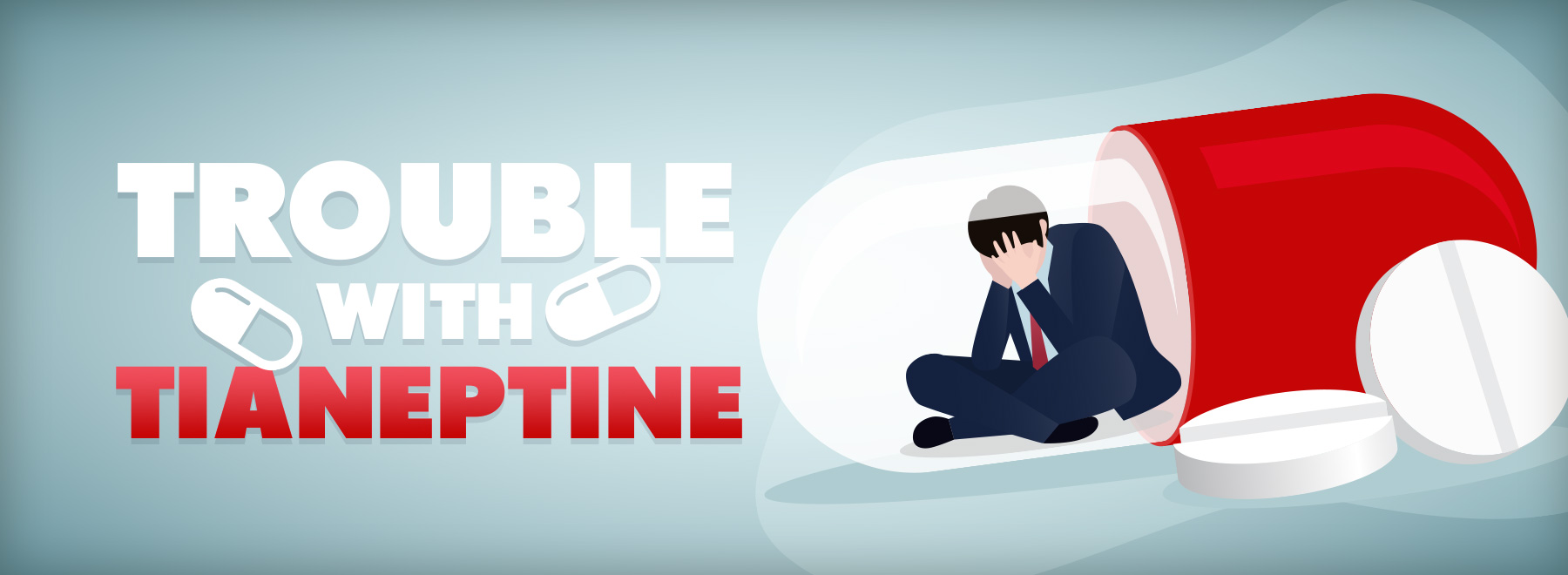State has had its fill of ‘gas station heroin’
In convenience stores and gas stations in Mississippi, the addictive drug called tianeptine has been sharing retail space with less habit-forming substances like Red Bull and Cheetos.
If you decide to take this so-called “gas station heroin,” you could lose weight; you could also lose your life.
Often appearing as red-and-white capsules in bottles with such labels as Za Za and Tianna, tianeptine is sold as a dietary supplement for “focus” and “energy” or “for research purposes only.” The FDA has not approved it for medicinal use.
Medical experts, lawmakers and others are acting or speaking against the synthetic drug that was first developed decades ago as an antidepressant – ironic, considering the depressing statistics it is generating.

“We’re getting calls about overdoses and calls about withdrawal symptoms,” said Jenna Davis, managing director of the Mississippi Poison Control Center.
In 2018, the center, which receives most of its funding from the University of Mississippi Medical Center, received no such calls. For 2019 and 2020: one each. 2021: nine. In 2022, the center logged 20.
In March of last year, the Mississippi State Department of Health issued an alert about the drug, cautioning that people “with a history of opioid use disorder or dependence are at particular risk for using tianeptine and may experience serious side effects, which can mimic opioid toxicity and withdrawal … . [D]eaths have been reported from the use of tianeptine.”
So far, in 2023, Davis said, “we’re on track for 70 cases.” Because it’s likely that a number of incidents are never reported to the Poison Control Center, the actual toll is probably much higher, Davis said.
“You don’t need a prescription to get it. Technically, anybody could get ahold of it.”
In February, the Columbus city council banned the sale of tianeptine within the city limits after hearing from, among others, relatives of a man who, according to his mother, died from an overdose.

While there have been media accounts of the death, it was not reported officially to the Poison Control Center, said Dr. Brett Marlin, assistant professor of emergency medicine and the Poison Control Center’s medical director.
“But we’ve had calls from all over the state about tianeptine and, in the neighboring communities of Jackson, we’ve had at least two physicians requesting guidance about people who have developed an addiction. They’re not sure what do to, because it is a unique drug,” said Marlin who is board-certified in medical toxicology and in addiction medicine.
“The drug mimics an opioid, so we talked about getting the patients into treatment for opioid use.”
On its website, the FDA warns: “Consumers may inadvertently find themselves addicted to tianeptine and should avoid all products containing tianeptine, especially those claiming to treat opioid use disorder (OUD).
“Reliance on products with unsubstantiated claims may delay those who suffer from OUD from entering recovery and may put them at greater risk of overdose and death.”
State lawmakers in Mississippi have acted in attempt to stop the case counts from mounting. House Bill 4 categorizes tianeptine as a controlled substance, meaning it is illegal for sale or use without a physician’s prescription. But the law, signed by the governor in March, won’t become effective until July 1.
“Tianeptine is relatively weak compared to some other drugs; it’s just easier to get ahold of,” Marlin said. “But, even if there may be a limited number of people using it, if we don’t stop it, it could grow into a larger issue.”
Why are people using it?
“Some people I’ve spoken with say it increases your attention span, short-term. It has a calming, focusing effect. These things can be subjective, though,” Marlin said.
“I’ve heard from several people that the effect diminishes rapidly, so you take more and more pills. The impulse to feel this way becomes a compulsion. First, you do it to gain something. Eventually, it becomes something you do to avoid something: a bad feeling.”
The more serious effects of tianeptine include lethargy, confusion, hallucinations, seizures and feelings of withdrawal, Davis said.
“There are providers in clinics who are confused about how to manage people with withdrawal. It can be confusing to see an over-the-counter substance presenting opioid-like symptoms. And the availability of addiction treatment facilities here in Mississippi is small,” she said.
The cost, monetarily, is not so small, Davis said. “There are people who spend up to a thousand dollars a month on this addiction.”
Various media reports list 15-pill bottles of tianeptine at anywhere from $24 to $45; the drug is also available for purchase online.
Directions for use on a bottle of Za Za point out that the FDA has not approved the product for consumption; the label also says the drug is not for sale to minors.
Over-the-counter sales of tianeptine have been banned in other states as well including Mississippi neighbors Alabama and Tennessee.
Mississippi’s anti-Za Za legislation adds tianeptine to the list of Schedule III drugs, lumping it with ketamine and anabolic steroids. Simple possession of less than 50 grams or fewer than 100 pills, or dosage units, of a Schedule III controlled substance is a misdemeanor and carries a maximum penalty of one year in jail or a fine of no more than $1,000. With greater amounts, the penalties escalate.
Anyone buying or selling tianeptine or possessing it with intent to transfer would face even stiffer penalties, depending on the amount, starting with less than two grams or fewer than 10 dosage units.
“That’s what I’m concerned about,” Marlin said. “People who are addicted need to be in treatment, not incarcerated.
“But this product should be banned; it’s one more thing we shouldn’t have to worry about.”
— — —
Anyone with questions about tianeptine is encouraged to call the Mississippi Poison Control Center’s toll-free number: 1-800-222-1222.
The above article appears in CONSULT, UMMC’s monthly e-newsletter sharing news about cutting-edge clinical and health science education advances and innovative biomedical research at the Medical Center and giving you tips and suggestions on how you and the people you love can live a healthier life. Click here and enter your email address to receive CONSULT free of charge. You may cancel at any time.



